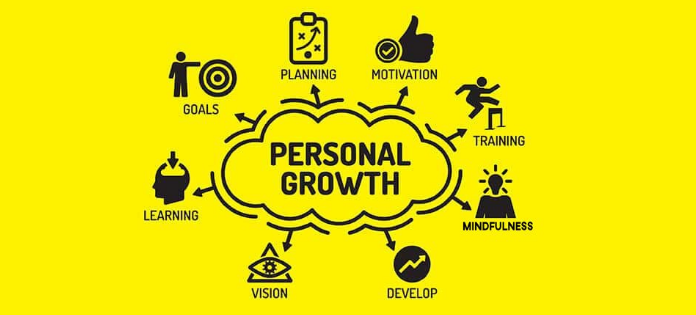Self-improvement is a lifelong endeavor that involves a conscious effort to enhance various aspects of our lives. Whether it’s improving mental and emotional well-being, physical health, or professional skills, self-improvement is about making intentional choices to grow and develop. This article explores the essential steps for self-improvement, offering strategies to help you become the best version of yourself.
Understanding Self-Improvement
Self-improvement is the process of consciously seeking to develop oneself in different areas of life. It encompasses personal development activities such as enhancing self-awareness, building new skills, cultivating positive habits, and setting and achieving personal goals. At its core, self-improvement is about striving to reach your fullest potential and leading a more fulfilling and meaningful life.
Step 1: Cultivate Self-Awareness
The first step in any self-improvement journey is self-awareness. Self-awareness involves understanding your thoughts, emotions, strengths, weaknesses, and values. This understanding lays the foundation for personal growth.
- Reflect Regularly: Set aside time each day to reflect on your experiences, thoughts, and emotions. Journaling can be an effective tool for this.
- Seek Feedback: Ask for feedback from trusted friends, family members, or colleagues. They can provide insights into areas where you might need improvement.
- Mindfulness and Meditation: Practices like mindfulness and meditation help increase self-awareness by allowing you to observe your thoughts and feelings without judgment.
Step 2: Set Clear, Achievable Goals
Setting clear and achievable goals gives direction to your self-improvement efforts. Goals provide motivation and a sense of purpose.
- Use the SMART Criteria: Ensure your goals are Specific, Measurable, Achievable, Relevant, and Time-bound. This makes them more actionable and easier to track.
- Break Down Goals: Divide larger goals into smaller, manageable tasks. This makes the goals less overwhelming and easier to accomplish.
- Visualize Success: Visualize what achieving your goals looks and feels like. This can enhance motivation and commitment.
Step 3: Develop a Growth Mindset
A growth mindset is the belief that your abilities and intelligence can be developed through dedication and hard work. This mindset fosters resilience and a love of learning.
- Embrace Challenges: View challenges as opportunities to learn and grow rather than obstacles.
- Learn from Criticism: Use constructive criticism as a tool for improvement. Instead of feeling defensive, focus on what you can learn from the feedback.
- Celebrate Effort: Recognize and celebrate your efforts and progress, not just the end results. This reinforces the value of hard work and persistence.
Step 4: Build Healthy Habits
Healthy habits are the foundation of self-improvement. They enhance your overall well-being and provide the energy and resilience needed for growth.
- Regular Exercise: Engage in physical activities that you enjoy. Exercise improves both physical and mental health.
- Balanced Diet: Eat a diet rich in fruits, vegetables, lean proteins, and whole grains. Proper nutrition fuels your body and mind.
- Quality Sleep: Prioritize sleep to ensure you get 7-9 hours of rest each night. Good sleep is crucial for cognitive function and emotional stability.
- Stress Management: Practice stress management techniques such as deep breathing, yoga, or mindfulness to maintain mental and emotional balance.
Step 5: Commit to Lifelong Learning
Continuous learning keeps your mind sharp and opens up new opportunities for growth.
- Read Regularly: Make reading a daily habit. Books, articles, and journals can expand your knowledge and perspective.
- Take Courses and Workshops: Enroll in courses, attend workshops, and participate in seminars to acquire new skills and knowledge.
- Learn from Experiences: Treat every experience, whether positive or negative, as a learning opportunity. Reflect on what you can learn from each situation.
Step 6: Improve Time Management
Effective time management allows you to make the most of each day and stay focused on your self-improvement goals.
- Prioritize Tasks: Identify the most important tasks and focus on completing them first. Use tools like to-do lists and planners to stay organized.
- Set Boundaries: Learn to say no to activities and commitments that do not align with your goals. Protect your time and energy for what matters most.
- Eliminate Distractions: Minimize distractions by creating a conducive environment for work and focusing on one task at a time.
Step 7: Build a Supportive Network
Surround yourself with positive influences that support your self-improvement journey.
- Seek Positive Relationships: Foster relationships with individuals who encourage, inspire, and challenge you to be better.
- Join Groups and Communities: Engage with groups or communities that share your interests and goals. This provides a sense of belonging and motivation.
- Find a Mentor: A mentor can offer guidance, support, and valuable insights based on their experiences.
Step 8: Practice Gratitude and Positivity
Gratitude and positivity enhance mental and emotional well-being, making it easier to stay motivated and resilient.
- Keep a Gratitude Journal: Regularly write down things you are grateful for. This practice shifts your focus to the positive aspects of your life.
- Maintain a Positive Attitude: Cultivate a positive attitude by focusing on solutions rather than problems. Positivity can improve your resilience and outlook on life.
Step 9: Enhance Emotional Intelligence
Emotional intelligence (EI) is the ability to understand and manage your emotions and the emotions of others. High EI is linked to better relationships and professional success.
- Practice Empathy: Try to understand others’ perspectives and emotions. This can improve your interpersonal relationships.
- Manage Your Emotions: Learn techniques to regulate your emotions, such as deep breathing or counting to ten before reacting.
- Improve Social Skills: Develop strong social skills by practicing active listening, effective communication, and conflict resolution.
Step 10: Seek Professional Guidance
Sometimes, seeking professional guidance can accelerate your self-improvement journey.
- Therapists and Counselors: A therapist or counselor can help you address and overcome personal challenges.
- Coaches and Mentors: A coach or mentor can provide personalized support, accountability, and expert advice.
- Educational Programs: Enroll in programs that offer structured guidance and support in your areas of interest.
Overcoming Challenges in Self-Improvement
- Dealing with Setbacks
- View setbacks as learning opportunities. Reflect on what went wrong and how you can improve. Resilience is key to overcoming obstacles and continuing your growth journey.
- Maintaining Motivation
- Motivation can wane over time. To stay motivated, keep your goals visible, celebrate small achievements, and surround yourself with supportive individuals.
- Balancing Improvement and Self-Acceptance
- While striving for Self-Improvement, it’s important to practice self-acceptance. Recognize your current strengths and appreciate your journey. Balance ambition with self-compassion to maintain a healthy perspective.
Conclusion
The journey to a better you is a continuous process of growth and self-discovery. By cultivating self-awareness, setting clear goals, developing a growth mindset, and building healthy habits, you can make significant strides in your personal development. Commit to lifelong learning, manage your time effectively, and build a supportive network to sustain your progress.
Remember that self-improvement is not about achieving perfection, but about making consistent efforts to become a better version of yourself. Embrace the journey with patience and persistence, and you will unlock your full potential and lead a more fulfilling life.





